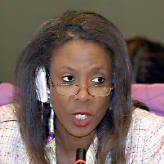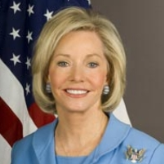Antigua and Barbuda
Pre-ceramic Amerindians were the first to inhabit the islands of Antigua and Barbuda around 2400 BC. Later, Arawak and Carib Amerindian tribes populated the islands. Christopher Columbus landed on Antigua during his second trip in 1493 and named the main island Santa Maria de la Antigua. The British began to colonize in 1632, beginning 350 years of rule, interrupted only by a very brief French interlude in 1666. The British replaced the subsistence agriculture of the Amerindians with a plantation economy based on sugarcane production for export. They imported thousands of Africans to work as slaves on their sugar plantations under brutal conditions that led to high death rates. Slavery was abolished throughout the British Empire in 1834, but the slaves of Antigua and Barbuda found their condition little changed because they had no access to arable land or credit. Beginning in the 1940s, a labor movement among the sugarcane workers became the basis for an increasingly vocal independence movement, which was led by Vere C. Bird, who became the country’s first prime minister in 1981. At that time, Antigua and Barbuda became an independent parliamentary democracy within the British Commonwealth of Nations, with the British monarch serving as the new nation’s Queen as well.
 Lovell, Deborah-Mae
Lovell, Deborah-Mae
- Table of Contents
- News
- Overview
- Basic Information
- History
- Newspapers
- History of U.S. Relations with Antigua and Barbuda
- Current U.S. Relations with Antigua and Barbuda
- Where Does the Money Flow
- Controversies
- Human Rights
- Debate
- Past Ambassadors
- Ambassador to the U.S.
- Embassy Web Site in the U.S.
- Comments
- Leave a comment
U.S. Ambassador to Antigua and Barbuda

Table of Contents
- News
- Overview
- Basic Information
- History
- Newspapers
- History of U.S. Relations with Antigua and Barbuda
- Current U.S. Relations with Antigua and Barbuda
- Where Does the Money Flow
- Controversies
- Human Rights
- Debate
- Past Ambassadors
- Ambassador to the U.S.
- Embassy Web Site in the U.S.
- Comments
- Leave a comment
Pre-ceramic Amerindians were the first to inhabit the islands of Antigua and Barbuda around 2400 BC. Later, Arawak and Carib Amerindian tribes populated the islands. Christopher Columbus landed on Antigua during his second trip in 1493 and named the main island Santa Maria de la Antigua. The British began to colonize in 1632, beginning 350 years of rule, interrupted only by a very brief French interlude in 1666. The British replaced the subsistence agriculture of the Amerindians with a plantation economy based on sugarcane production for export. They imported thousands of Africans to work as slaves on their sugar plantations under brutal conditions that led to high death rates. Slavery was abolished throughout the British Empire in 1834, but the slaves of Antigua and Barbuda found their condition little changed because they had no access to arable land or credit. Beginning in the 1940s, a labor movement among the sugarcane workers became the basis for an increasingly vocal independence movement, which was led by Vere C. Bird, who became the country’s first prime minister in 1981. At that time, Antigua and Barbuda became an independent parliamentary democracy within the British Commonwealth of Nations, with the British monarch serving as the new nation’s Queen as well.
 Lovell, Deborah-Mae
Lovell, Deborah-Mae
Comments
morelessU.S. Ambassador to Antigua and Barbuda







Comments
moreless